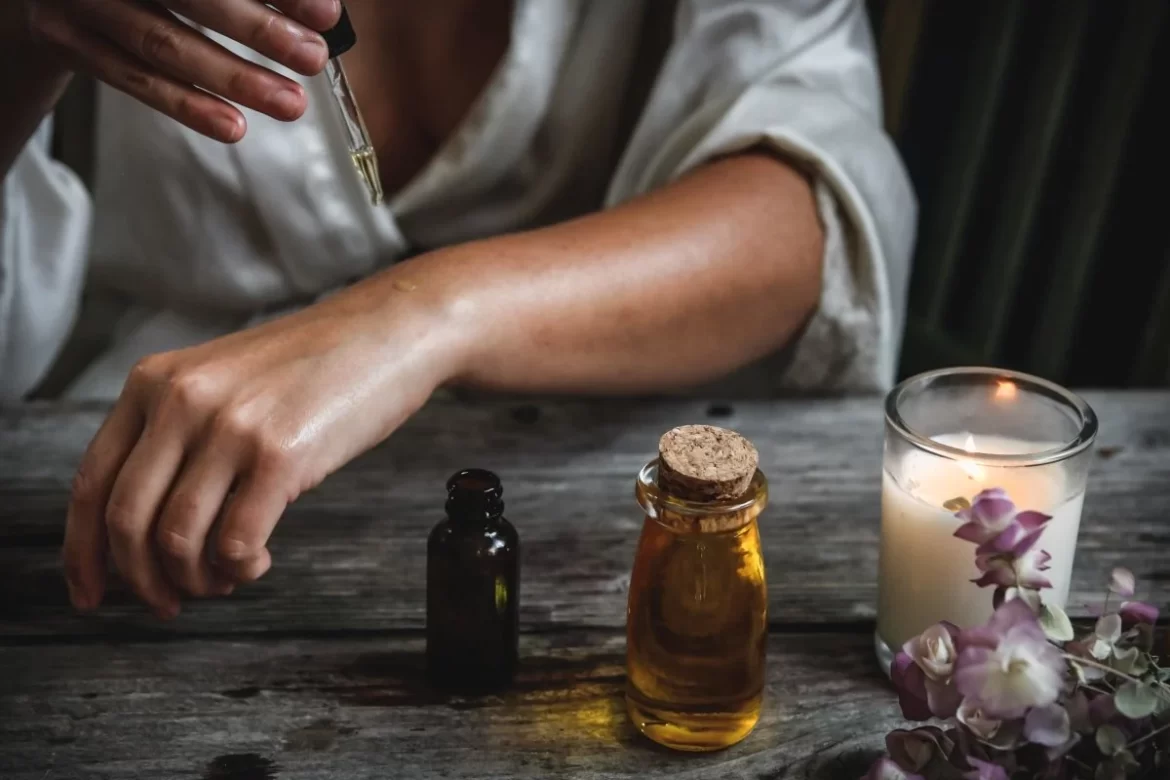Smell is an extremely potent sense, connecting directly with areas of the brain associated with mood and emotion. Research suggests inhaling fragrant oils could positively impact stress, anxiety, depression and sleep issues.
Aromatherapy may be familiar through products like Vick’s Vaporub, which uses eucalyptus and menthol essential oils to ease congestion, or diffusers at work that use lavender essential oil to help calm anxiety and increase focus and relaxation. But what’s behind its success?
Mood
Aromatherapy combines essential oils and other natural products such as vegetable oils, CO2 extracts, and hydrosols for therapeutic effects when applied topically or inhaled. Most essential oils come from flowers, leaves, bark roots or peels of plants which have been either distilled or cold pressed before distillation/cold pressing takes place.
Levy asserts that lavender, chamomile and ylang ylang plants can help alleviate stress by their aroma; furthermore they may promote sleep while alleviating anxiety and depression symptoms.
Other scents may help stimulate you, such as citrus oils. Lemon and citrus aromas may even increase immunity, making you less vulnerable to infection.
Studies suggest certain scents may have an emotional effect, though more research needs to be conducted in this area. You can experiment with various aromas until more is known – just make sure you dilute essential oils with carrier oil prior to applying topically as this could irritate your skin or lead to chemical reactions that harm fetuses.
Memory
Smells stimulate the olfactory part of your brain, which has direct connections to regions involved with memory and emotions – this explains why certain aromas can so powerfully bring back memories.
Studies demonstrate the effect that scent can have on work performance, physical health and cognitive functioning as well as dreams. Researchers discovered that sleeping with rose, lavender and chamomile scents led to deeper, slower and more relaxed breathing than when two control fragrances were used in bed at night.
When inhaling essential oil aromas, their molecules travel through your nose to your olfactory receptors before entering your brain where they cross over into your limbic system – this explains why certain scents are more effective at altering mood and alleviating stress, anxiety or depression than others.
Cognition
Since our emotions are tightly interlinked with memories associated with specific scents, perfume and aromatherapy companies often employ this tactic when developing their products.
As soon as a scent hits you, its meaning may change drastically once associated with an event or person – at which point, your olfactory nerves can link it with both positive and negative associations.
Used correctly, fragrances can help alleviate anxiety and stress, enhance sleep quality, boost self-confidence, physical performance and cognitive function, as well as promote physical recovery after injury or surgery. Aromatherapy involves inhaling an essential oil blend through a vaporizer or spray device or adding them directly into a bath – therapy directory’s Hayley Merrick recommends adding several drops of lavender oil into warm bathwater to promote relaxation and prepare the body for restful slumber.
Emotion
Since ancient times, fragrant plants have been utilized as part of self-care and healing practices all over the globe. Their oils may be diluted down and applied directly onto skin for aromatherapy treatments; since essential oils are unregulated by FDA regulations it’s wise to consult a qualified aromatherapist or doctor before beginning use of them.
Smells are unique among our senses in that they directly reach our limbic system, which regulates memory and emotion. This makes their emotional and cognitive impact particularly profound.
Scents can boost energy and attention, which explains why you might find yourself in the lobby of a spa with fragrant candles or working in an office with an aroma diffuser. But you don’t need to travel – try getting some of the same benefits of scents at home by placing a few drops of oil into a glass of water and holding it under your nose when necessary, or adding them into a bowl of hot water covered with a towel over your head and inhaling its steam instead.




